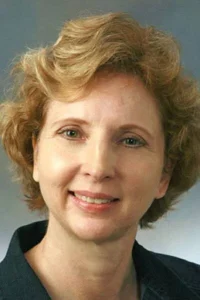Purpose & Resilience
Dr. Ugochukwu’s honest and courageous embrace of living with chronic disease, it turns out, has served her well. For the remainder of middle school and into high school, her parents were able to help with appointments, managing medications and symptoms. Through those times, Dr. Ugochukwu’s scholastic record never faltered. She attributes her ability to achieve to her parents’ unflagging support. Both parents have PhDs (her father in organic chemistry and her mother in biochemistry), and they always urged her to do her best in school. “They emphasized that lupus was not an excuse to not do well in my classes, that I should try to have goals for the future. That was very motivating for me.”
Melissa E. Elder, MD, PhD, professor and chief, Department of Pediatrics-Immunology at the University of Florida, was one of Dr. Ugochukwu’s physicians during her years at Shands. She says Dr. Ugochukwu was able to fight through her disease and “continue to be motivated; she’s definitely an exception and definitely to be admired in that regard.”
Dr. Ugochukwu continued to have flares and to curtail her physical activities. She also experienced bullying, she recalls, because of the effects of lupus, which caused skin changes and weight loss from the inflammation. By the time she became a high school senior, she had organized a Lupus Lunch and Learn, with support from faculty and other students. As a result, many of her teachers and fellow classmates thanked her and responded positively to their awareness of lupus. It was that event that pushed her toward medicine, she says. Because her parents were PhD research scientists, she had already been thinking of a career in science. But through her own experience, of having to travel five hours round trip to see the pediatric rheumatologist, she began to realize that going into pediatric rheumatology offered both a career path and a way to utilize her own experience to help others.
Coaching Patients & Families
Receiving a diagnosis like lupus is monumental for both patients and their parents, Dr. Ugochukwu says. The fear of losing their child to a fatal condition is one component of the diagnosis. “From what I’ve seen, from talking with my own parents and other parents and caregivers, this also feels like the loss of dreams for their child.”
With this knowledge front and center, Dr. Ugochukwu embarks on counseling families about quality-of-life issues. She addresses myriad questions from parents, questions that go way beyond how to manage medications and treatments. Questions come up for parents about how to cope with the disease, and even whether their child can go to college. She sees her role at this juncture to provide reassurance. She is intensely aware that the psychological and emotional aspects of having lupus can wear on a person just as much as the physical components.


